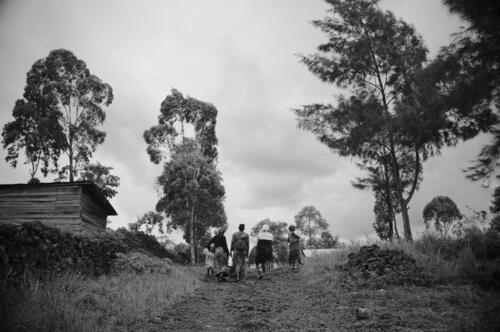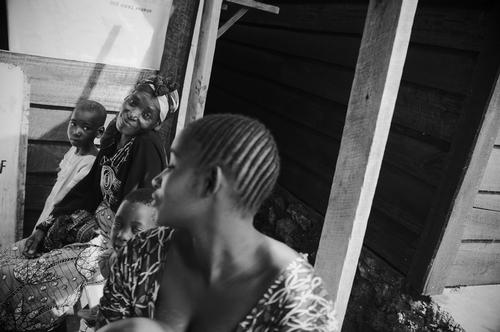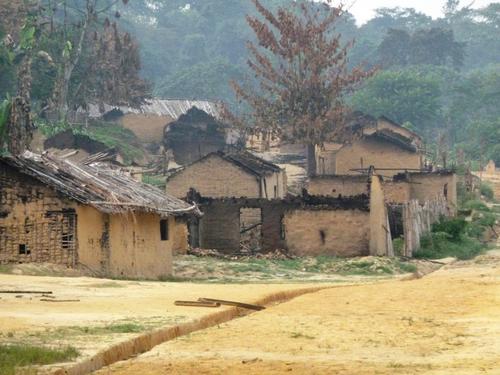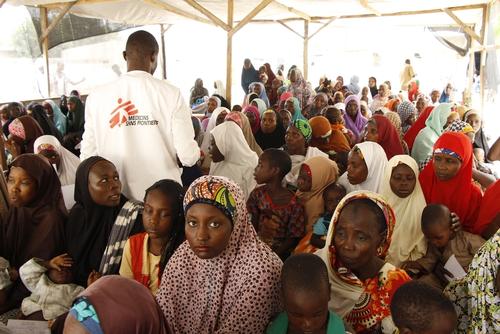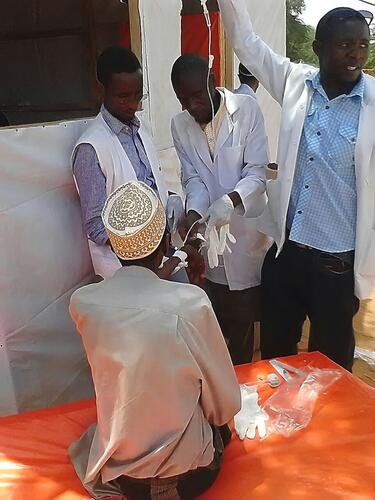We meet Jeanine at her home, in a camp for internally displaced people (IDPs) near Goma, around 9 am. After the introductions, she tells us about her life, one that resembles that of many women in North Kivu, Democratic Republic of Congo. "I’ve had a difficult life and I’ve known poverty. My mother raised me and my siblings on her own. My husband abandoned me because I had too many children; I have felt the bitterness of life...”
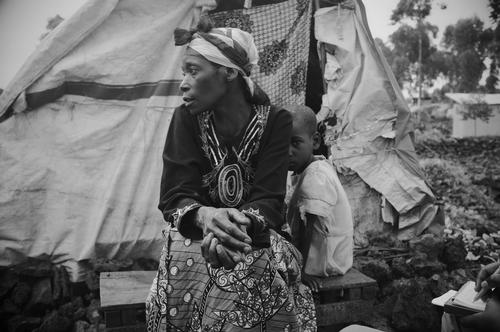
Like many other women in North Kivu Province, Jeanine suffered forced displacement and has since lived in an IDP camp. "One day I was at home in my village and heard mortar fire and bombs. Looking outside, I saw our neighbors fleeing. The whole village fled. Then we walked 24 hours to get here. That was 4 years ago. "
The pillar of her family, Jeanine works daily for her children. "Since my first child was born, I have been working hard, daily, to support them. I’ve managed to raise my six children, although not all have had the chance to go to school.”
When we ask about her daily life, Jeanine mainly talks about her children. "I go to bed thinking of my children. I think about what they will eat the next day. Every day I wake up early in the morning and look for daily work in the community. If you wake up too late, the work may already be taken. "
I go to bed thinking of my children. I think about what they will eat the next day. Every day I wake up early in the morning and look for daily work in the community. If you wake up too late, the work may already be taken.
Every day, Jeanine puts all her energy into securing a job for the next day.
"Every time I find a job, I invest lots of energy into doing well, so the boss will rehire me in the future." Her daily life is also touched by violence "Sometimes I go to the nearby Virunga Park in search of firewood, which I can sell to others to make a living. Unfortunately, the area is very insecure and park rangers and rebels can be very violent against us women. "
"But I fight. I'm still standing! "
After work, Jeanine goes home and cooks for her children. "They eat only once a day.” Then she adds, “Yesterday and today, I could not go to work, so I do not know yet what my children will eat. I had to take care of my oldest daughter who got very sick. She is at the MSF cholera treatment centre (CTC) right now. I am very concerned for her. I am looking after her daughter, Rita, who is two years old. She is also sick, but it's not cholera, so I do not know where to bring her for treatment.”
Jeanine tells us later that her daughter, Francine, seems to have recovered and that she plans to pick her up at the CTC. She agrees that we can come along.
At the CTC, we meet Francine, who seems to be doing well. For the first time that day, we see Jeanine’s face lighting up with a smile as she walks towards her daughter. "I came to the CTC yesterday," Francine tells us. "My colleagues, who work with me in the fields, brought me here because they were concerned about my condition. The nurses took great care of me. Now I feel better!"
Leaving the CTC, the women bump into neighbours who came to see Francine. Together they all return home, to the camp.
This evening, Jeanine will cook with her neighbours. Tonight she will fall asleep thinking of her children. And tomorrow she will wake up early and search for a job, so her children will be able to eat.
Jeanine’s story is not isolated case. It is representative of the incredible will and courage of many of the women of North Kivu, who fight every day to stay standing.
